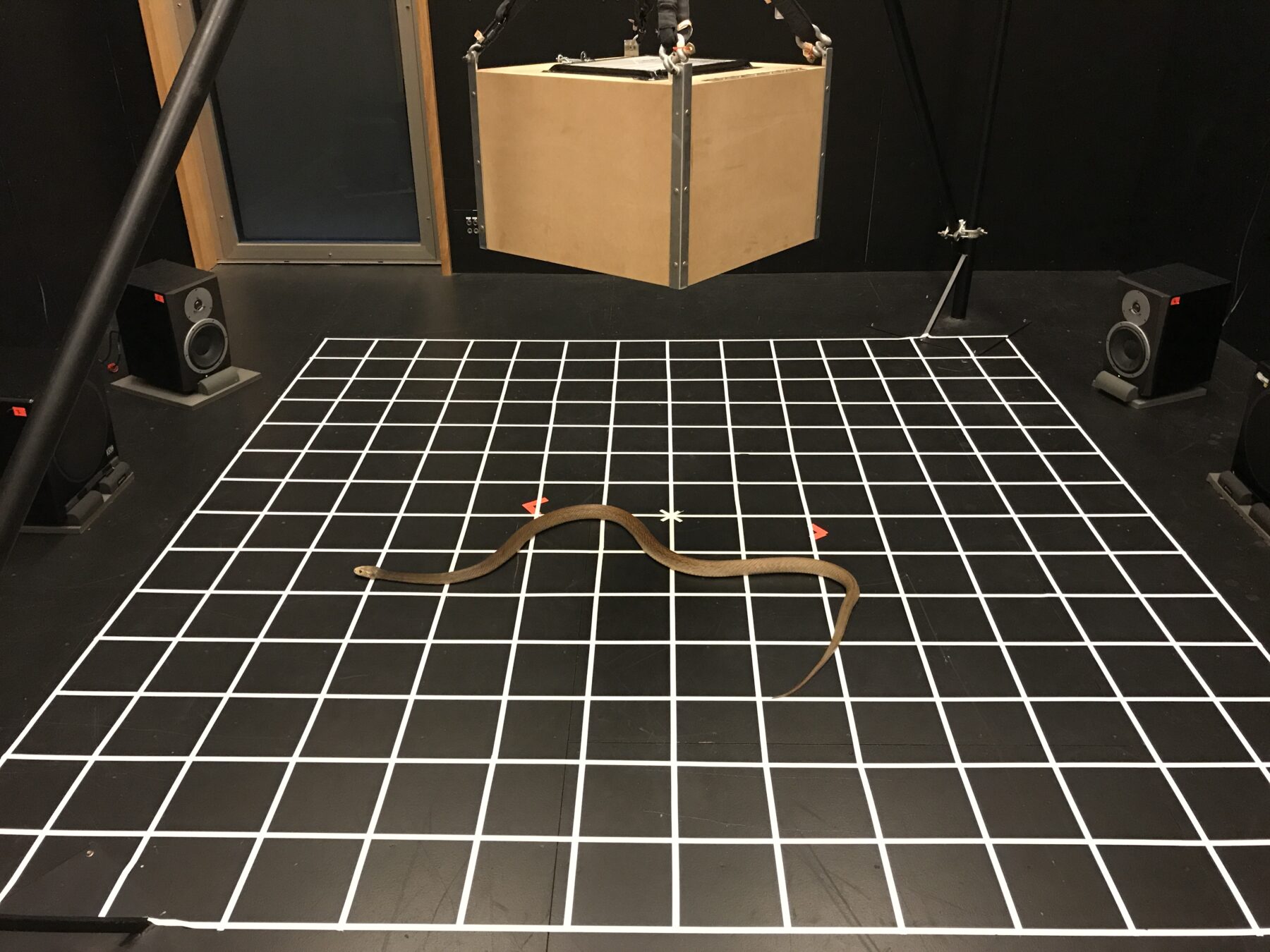Lisssssten ’ear: Snakes have better hearing than you might think

Scientists from the University of Queensland and Queensland University of Technology observed 19 individual snakes in more than 300 trials. The free-moving snakes – representing five genera of reptiles – were placed in a soundproof room and played three frequencies of sound, two of which did not produce ground vibrations.
“Because snakes don’t have external ears, people typically think they’re deaf and can only feel vibrations through the ground and into their bodies,” says Dr Christina Zdenek, from the University of Queensland’s School of Biological Sciences. “But our research found they do react to soundwaves travelling through the air, and possibly human voices.”
The snakes’ response to sound strongly depended on its genus and “foraging mode” – whether it ambushes or actively pursues its prey.
The non-venomous woma python, an ambush species found in western and central Australia, approached the sound.
“To me, that was quite surprising,” says Christina. “I thought all snakes would be cautious or defensive or fearful. Snakes are cowards by default.”
Christina suspects this inquisitive temperament is an evolutionary by-product of its nocturnal lifestyle.
“Woma pythons are large nocturnal snakes with fewer predators than smaller species,” she says. “They probably don’t need to be as cautious, so they tend to approach sound.”

Taipans and brown snakes – some of Australia’s most venomous reptiles – observed in the study were more likely to move away from the sound. These diurnal species have more predators than their nocturnal counterparts, including birds of prey and large lizards such as lace monitors and goannas.
“The taipans really didn’t like the sound,” says Christina. “It put them on edge. They were very defensive, dropping their lower jaw to expose the fangs [and] hissing… If you see that, don’t move; the snake is about to strike.”
Christina believes the taipans’ defensive behaviour is linked to its “foraging mode”.
“Taipans have to worry about raptor predators and they also actively pursue their prey, so their senses seem to be much more sensitive,” she explains.
Like spiders and sharks, snakes are one of the most feared animals in the world. But Christina insists this fear is misguided.
“Snakes are very vulnerable, timid creatures that hide most of the time. We still have so much to learn about them.
“We know very little about how most snake species navigate situations and landscapes around the world. But our study shows that sound may be an important part of their sensory repertoire.”
Thos research was published in PLOS ONE.






